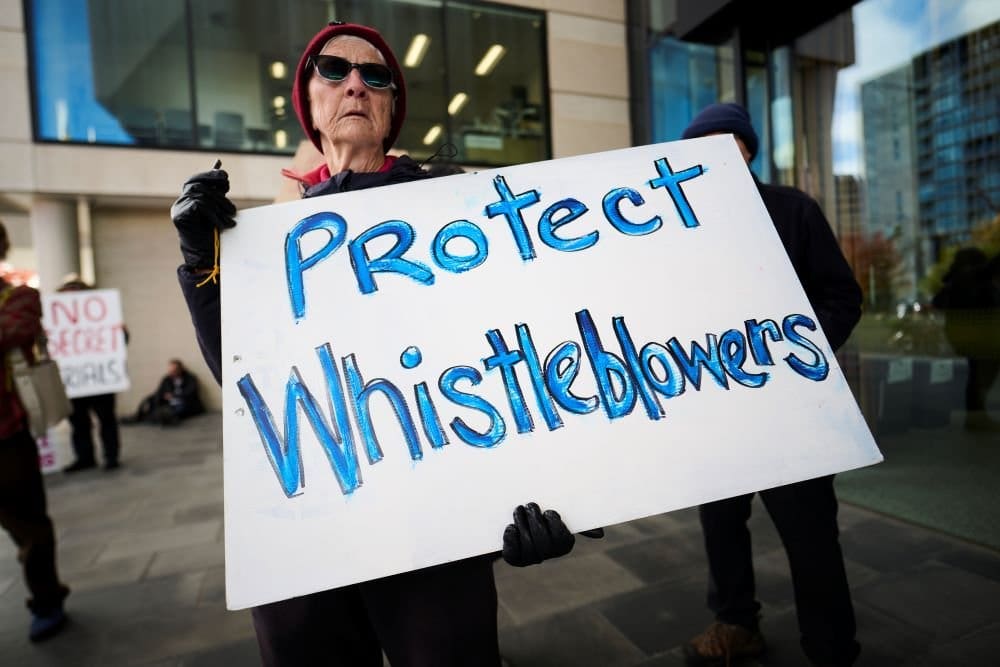Safeguards needed to stop secret trials
The Human Rights Law Centre is calling for the introduction of legislated minimum standards of openness in Australia’s legal system to prevent trials taking place in secret.
The call comes as the Independent National Security Legislation Monitor today holds a public hearing as part of its review into the secret trial of Witness J and the operation of a key provision – s 22 – of the National Security Information (Criminal and Civil Proceedings) Act 2004.
The NSI Act seemingly permits wholly secret trials, as was the case with former intelligence officer Witness J who was charged, sentenced and imprisoned in total secrecy.
Senior Lawyer at the Human Rights Law Centre, Kieran Pender, who will appear at the hearing, said:
“There is no place for secret trials in Australia. Open justice is a vital democratic principle, and it must be protected.
“The case of Witness J is deeply concerning. Not only was he charged, sentenced and jailed in secrecy, but the very existence of his case was concealed. If it were not for several fortunate coincidences, the case might never have come to light.
“The mere possibility that someone can be secretly arrested and jailed for years without the public ever knowing erodes confidence in our legal system. The NSI Act needs to be reformed as a matter of urgency to ensure there is a minimum level of openness in all cases.”
The Human Rights Law Centre will make three key recommendations at the hearing:
-
An ‘Open Justice Advocate’ scheme should be established to ensure the public interest in open justice is always defended in court;
-
Courts making s 22 orders should be required to give public reasons for the orders, justifying the need to depart from the starting point of open justice;
-
The NSI Act should be amended to require the establishment of a ‘secret judgments library’, where all unpublished judgments in cases involving s 22 orders be retained. These judgments should be reviewed periodically and released once the national security concerns that justified the initial secrecy have lapsed.
“Without urgent reform, there is nothing to stop more secret trials taking place in Australia,” Pender said.
“The Witness J case is part of a broader trend towards secrecy and surveillance in Australia. Secrecy orders under the NSI Act have also been made in the prosecutions of whistleblowers David McBride, Bernard Collaery and Witness K – people who spoke up in the public interest and who should be thanked, not punished.
“As has been recommended by countless reviews and inquiries, the Morrison Government should enact stronger legal protections for whistleblowers and rein in the undemocratic secrecy and surveillance laws which impede whistleblowing and public interest journalism in Australia.”
Media contact:
Evan Schuurman, Media and Communications Manager, 0406 117 937, evan.schuurman@hrlc.org.au

INCLO members stand in solidarity with Al-Haq against US sanctions and call for immediate reversal of decision
The International Network of Civil Liberties Organisations, including the Human Rights Law Centre stands in solidarity with Al-Haq, a Palestinian organisation of human right defenders which has been sanctioned by the US Government.
Read more
Albanese Government’s progress on whistleblower reform welcomed
The Albanese Government’s announcement on the next phase of public sector whistleblowing reform is a positive step forward for protecting and supporting whistleblowers.
Read more
Statement on the neo-Nazi violence and racism on 31 August
The Human Rights Law Centre strongly condemns the neo-Nazi violence towards First Nations people and the racial vilification of migrant and refugee communities on 31 August.
Read more



